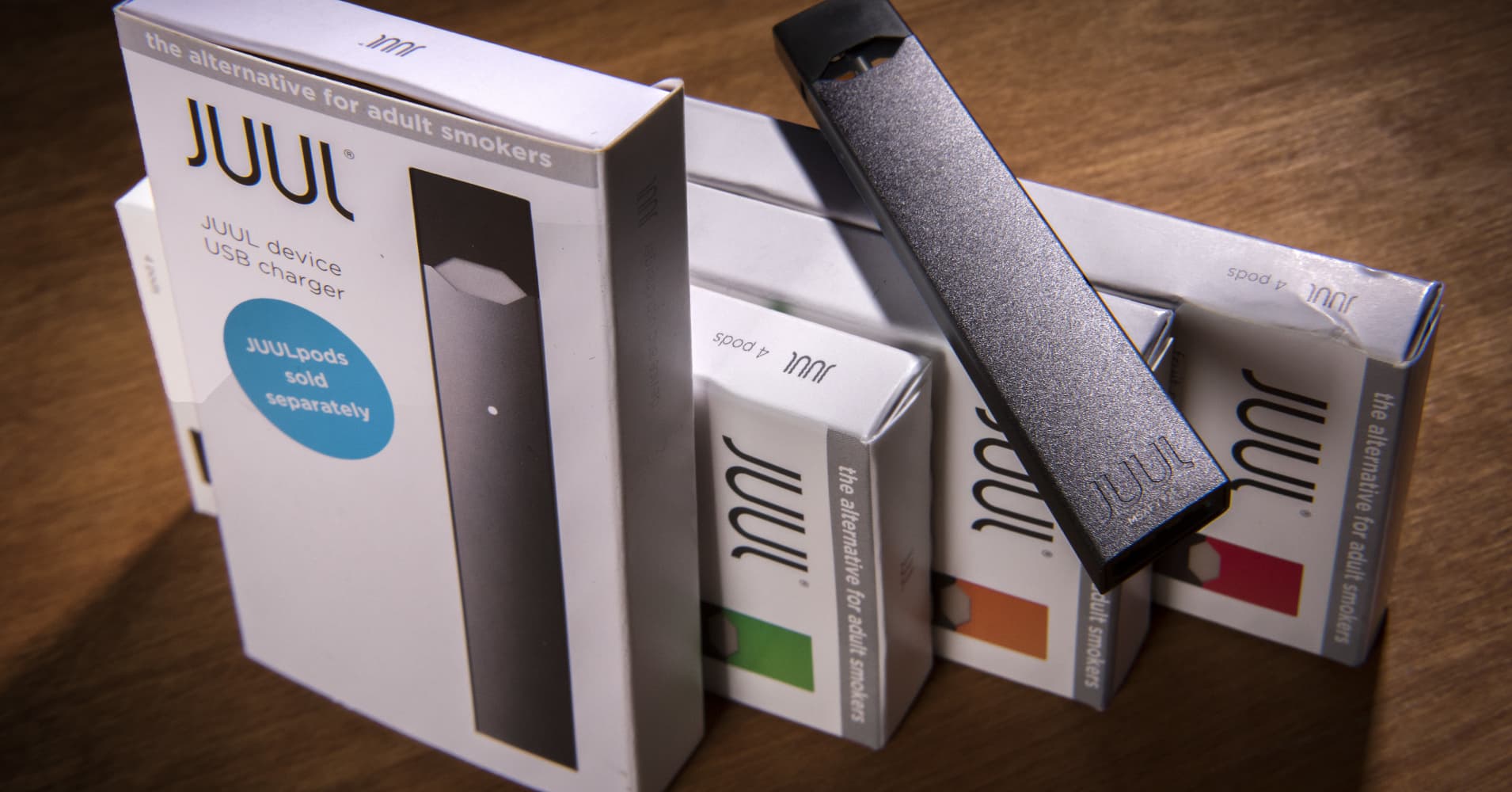
Tobacco giant Altria invested $12.8 billion in Juul, taking a 35 percent stake in the e-cigarette maker that valued it at $38 billion.
The all-cash deal has drawn criticism for Juul, which has positioned itself as an enemy of Big Tobacco. It markets its vapor pods as an alternative to combustible cigarettes, which are responsible for killing about half a million Americans every year. But a surge in high school students using e-cigarettes, mainly Juul, has challenged that posture. It is widely thought these teens would have never smoked, but are being introduced to addictive nicotine by vaping.
“We are taking significant action to prepare for a future where adult smokers overwhelmingly choose non-combustible products over cigarettes by investing $12.8 billion in Juul, a world leader in switching adult smokers,” Altria’s CEO Howard Willard said in a statement. “We have long said that providing adult smokers with superior, satisfying products with the potential to reduce harm is the best way to achieve tobacco harm reduction.”
He said it’s Altria’s biggest investment “toward that goal.”
The deal ends 14 months of on-and-off negotiations, according to people familiar with the matter, and marks a turning point for Juul. It also shows how much has changed for the company in a little over a year.
As part of the deal, Altria agreed to give Juul top shelf space so Juul pods are displayed alongside Altria’s Marlboro-branded cigarettes. It will also help Juul with its distribution and logistics efforts, including through Altria’s sales organization that covers about 230,000 retail locations.
Altria to a “standstill agreement” that prohibits it from acquiring more than a 35 percent stake or selling off its Juul shares within six years from closing. Juul will remain an independent company, though Altria will be allowed to appoint enough directors representing one-third of Juul’s total board, the companies said.
The deal will also likely help Juul navigate some dicey regulatory waters. Federal health officials have cracked down on Juul’s use of fruity flavors, which they say encourages teen use. With this pressure, Juul has started facing some of the same regulatory and financial pressures that Big Tobacco has dealt with for decades. A deal with Altria could bring that institutional knowledge.
“We understand the controversy and skepticism that comes with an affiliation and partnership with the largest tobacco company in the US. We were skeptical as well,” Juul CEO Kevin Burns said in a statement posted on Juul’s website. “But over the course of the last several months we were convinced by actions, not words, that in fact this partnership could help accelerate our success switching adult smokers.”
Some analysts have speculated what an investment in Juul means for Altria’s relationship with Philip Morris International, the company it spun off in 2008. The two have an agreement for Altria to commercialize PMI’s new heated tobacco product, iQOS, in the U.S. if the FDA clears it.
Since the separation, Altria has operated largely in the U.S., while PMI has stayed international, meaning the two companies haven’t directly competed. Juul’s products are already sold in eight markets overseas.
Be the first to comment